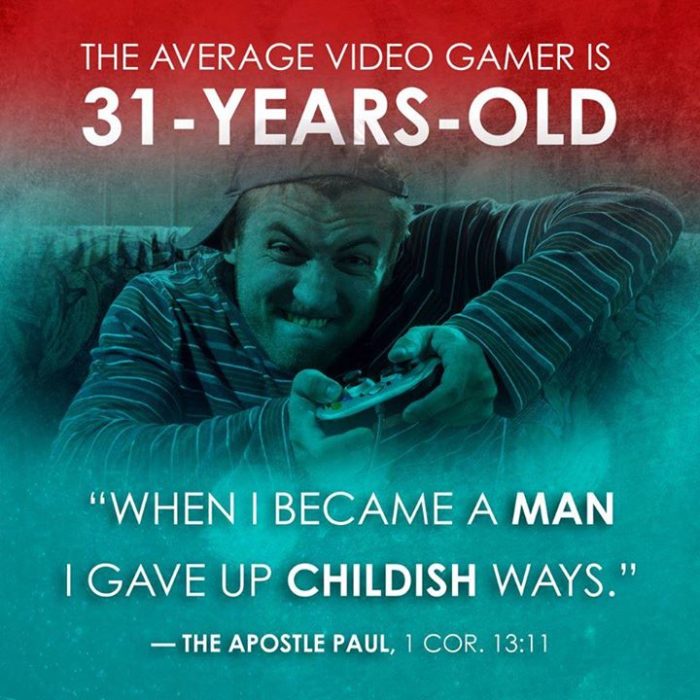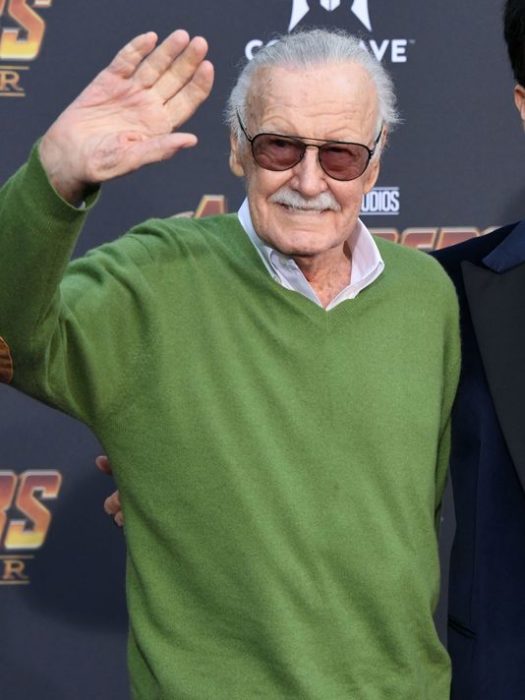Why Bill Maher and Mark Steyn are (Mostly) Wrong about Stan Lee and Superhero Fantasy
Here’s a rare display of unity. Progressivist pundit Bill Maher and conservative pundit Mark Steyn both scowled at fans of superheroes and the late Stan Lee.
Of course, they’re both wrong. But not only for the reasons many superhero fans offer.
Let’s take a quick look at what these men said. Note that I will take them at their word. Sure, maybe they’re both trying to be provocative. But I know a little about Maher—and far more about Steyn—to know that they’re fairly principled chaps. They’ll say what’s truly on their mind. Both seem to genuinely support the First Amendment right to free speech, even if their own “side” balks at them.
First, from progressivist Bill Maher, at his own Nov. 17 blog:
America is in mourning. Deep, deep mourning for a man who inspired millions to, I don’t know, watch a movie, I guess. … We’re using our smarts on stupid stuff. I don’t think it’s a huge stretch to suggest that Donald Trump could only get elected in a country that thinks comic books are important.1
Next, from conservative Mark Steyn, also at his own Nov. 17 blog:
So we have [superhero] movies about nothing. You can discern subplot if you wish, but in the end what 99 per cent of moviegoers notice is the stuff that’s not sub-: He has webbing shooting out of his fingers! He can shrink to the seize of an ant! … A world of superheroes leads remorselessly to a world without heroes.2
Both pundits have drastically different philosophical backgrounds. But they came to the same conclusion. They claim comic books and superhero movies may be harmless, but are ultimately immature and pointless. They say audiences should not waste so much time on these fantasies. And they say it’s pointless for grown-ups to waste so much time trying to justify these stories’ philosophical “subtext.”3
They’re not so much talking about Lee or other creators, but about you and me.
Also, they’re not so much talking about simply superheroes or “comic books” (itself a potentially dated label to refer to these stories). They’re talking about fantasy.
Where Maher and Steyn are (mostly) right
Some fans really are immature about superheroes and other fantasy. We’ve known these fans. Sometimes we’ve been these fans. That’s because the biblical Christian understands that humans like to sin-twist any good gift. Some fans treasure fantasy worlds so much that they leave their heart there (Matt. 6:21), with little time for family or career, to say nothing of living our lives centered on the gift-Giver.
Also, in this age, institutional family breakdown has gone amok. We ought to be aware that fictional families—superheroes and otherwise—can become idolatrous substitutes. Even our knowledge about the intricacies of franchises can give fans a false sense of productivity. We may even feel we have greater “stewardship” over the fantasy worlds instead of the real world.
Steyn, who spends more time sharing Lee’s backstory, is also right to question whether Lee has previously taken credit for other artists’ work (such as Steve Ditko and Jack Kirby). These are long-debated issues among superhero fans.4 Steyn also demonstrates acute knowledge of superhero stories, right down to the simple details such as correct quoting and attribution of film quotes as well as correctly spelling hero titles. (He even hyphenates and capitalizes the name Spider-Man.)5
Where Maher and Steyn are (mostly) wrong
1. Fantasy and superhero stories are not automatically immature or ‘childish.’

Image relayed from TheologyGaming.com (original source unlisted). As Zachary Oliver notes, the apostle Paul is talking about immature use of spiritual gifts, not the enjoyment of recreation that some people merely claim is “childish.”
Maher is laughably wrong when he makes the hackneyed claim that comic books are immature, stupid, and unimportant. Just because a story features a superhero or other fantastical hero/element, or follows a “graphic novel” format of dialogue accompanying illustrations, doesn’t mean the story is beneath mature adults.
To claim otherwise is plain, ornery, subjective highbrow-ism.
It’s ignorant of how popular stories develop, or last for centuries and become classic. Here you can fetch your standard points about how William Shakespeare and Charles Dickens created stories in the popular media of their day. Only later did everyone get together and decide their works were classified as classic.
Maher also seems ignorant of the best purpose of fantasy. These stories are not meant to show “reality” as we see it. Instead, they show reality as it is—our eternal reality that is epic and miraculous, and not limited to our daily chores and “grown-up” cliques and squabbling and dullness.
Here we’re again compelled to quote the childlike-yet-mature C. S. Lewis:
Critics who treat “adult” as a term of approval, instead of as a merely descriptive term, cannot be adult themselves. To be concerned about being grown up, to admire the grown up because it is grown up, to blush at the suspicion of being childish; these things are the marks of childhood and adolescence. And in childhood and adolescence they are, in moderation, healthy symptoms. Young things ought to want to grow. But to carry on into middle life or even into early manhood this concern about being adult is a mark of really arrested development. When I was ten, I read fairy tales in secret and would have been ashamed if I had been found doing so. Now that I am fifty I read them openly. When I became a man I put away childish things, including the fear of childishness and the desire to be very grown up.
2. Fantasy and superhero stories are not worthless solely because they’re not ‘sophisticated literature.’ Christians shouldn’t give an inch to this notion.

No worries, hero fans: if the story is made into a gritty crime drama on Netflix, that makes it “sophisticated.”
Maher and Steyn both mock the idea of adults who have “pretended comic books were actually sophisticated literature” (Maher’s words). Both pundits offer casual arguments that don’t engage with definitions or expectations of “literature,” either “sophisticated” or otherwise. They draw basic correlations and assume their joke is made: that all serious grown-ups, ipso facto, just know it’s just silly to suggest we can find all these metaphors in superhero stories. We all know it’s silly to write theses with titles like “Otherness and Heterodoxy in the Silver Surfer.”
Well, we can agree that it’s silly to base our fantasy defenses on metaphor-probing and thesis-writing. Some fantasy defenders may try this approach. For example, some Christian writers who seek Christ-figures, or more likely, “gospel themes” in their “engaging popular culture”–style articles (which get spoofed by The Babylon Bee).
However, these kinds of defensive fans accidentally give away the comic-book store to fantasy critics. How? By surrendering to the critics’ first principle that “the only worthwhile culture is Sophisticated Literature.” But this is not just untrue even based on the secular reasoning that “many classical texts began life as popular culture.” Christians have even greater reasons. We can insist on the fact that God made humans to make stories in many different ways. That means stories made for classic concert halls are no less valuable than stories told around campfires by nomadic tribes. Or stories shared over social networks. Or stories made by thousands of organized artists motivated by profit motive and mass distributed by TV, theaters, or websites.
3. Fantasy and superhero stories inspire good works, such as real-world heroism. But even if they didn’t, Christians can support them as part of godly rest and recreation.
Steyn is also wrong when he suggests fictional superheroes detract from real heroism. Of course, they can in some cases. But this overwrought claim simply doesn’t match our reality. Real heroes—such as emergency workers, but also charity providers—are often superhero fans. Some even cite the heroics of Superman, the X-Men, and Spider-Man as motives for entering hero-type jobs in the first place.6
Still, even this response can give away the store.
Either of these pundits assumes, without argument, that “if the story doesn’t motivate you to some serious work then it’s useless.” Alas, this is the same kind of mechanistic, “mind of metal and wheels” notion that many older Christians have made about fantasy. (And for which Christian fantasy fans must strive to forgive them.) Such notions would make sense if God did not promise his redeemed people an eternal Sabbath, which we can anticipate in today’s times of rest and recreation. But God did give us this promise. So let’s reject fool nonsense about how stories only ought to make us do work (or ministry), as opposed to “useless” things like rest, recreation, or human relationships.
This means that fantasy and superhero stories have a “point” simply by existing, and fantastically reflecting the human struggles with real life as well as good and evil.
Christians don’t need to condemn or justify fantastical stories by claiming they are/aren’t classic literature, or do/don’t support real heroism, or do/don’t actually reflect real-life cultural issues. That’s all surface-level stuff. Just as we explored last week, for Christians, the highest purpose of these stories isn’t to make us into heroes or else morally profitable ministry/social advocates. Their highest purpose is to reflect to us, however dimly, the real Hero whom we worship.
If you don’t get that purpose, it doesn’t matter if you’re a conservative like Steyn or a progressivist like Maher. One way or another, you will drift into secondary and pragmatic justifications against or for fantasy. Even otherwise biblical Christians, who suspect the highest purpose of stories is to teach morals or merely entertain us, will fall into this trap. But especially at this time of year, when we try to list the many ways God has provided for us, let’s not reject God’s gift of fantasy stories—or the people who made them like Stan Lee and his co-creators. Let’s instead thank God for these gifts.
- Bill Maher, “Adulting,” Real Time with Bill Maher Blog, Nov. 17, 2018. ↩
- Mark Steyn, “Whatever Happened to Non-Super Heroes?”, Steyn Online, Nov. 17, 2018. ↩
- Of course, them’s fighting words. See our articles, about subtext and all the rest of it, in the Badfan v Superman series from 2015 to 2016. ↩
- See also: publishers ignoring Superman creators Jerry Siegel and Joe Shuster, and the de-crediting of Batman co-creator Bill Finger. Only starting in 2015 did Warner Brothers begin crediting Finger for his creation of the Gotham detective’s famed tropes. ↩
- Unfortunately, other conservative pundits are not so respectful of fantasy genres, and thus utterly disqualify themselves from offering legitimate criticism here. In summer 2012, Rush Limbaugh insisted that The Dark Knight Rises film villain Bane simply must have been based on a then–current political foe called Bain Capital. Limbaugh insisted the creators had planned this, which would have required a sense of prediction more preposterously miraculous than The Joker’s. Of course, Bane the villain originally appeared in a Batman story published in 1993. ↩
- One might as well guffaw at science fiction with all its silly stories about spaceships. Ha ha, such escapist nonsense, such the notion that computers can play music in response to voice commands. Doesn’t this distract from real-life innovation? Ridiculous. Sci-fi imagination in fact inspires such innovation. Many inventors cite stories from Star Trek and Star Trek: The Next Generation as inspiration for mobile phones, tablet devices, and digital music. ↩









































I wonder if at least Maher would be the kind of person who would hand any comic book to a five year old because he assumes it’s ‘for kids’, only to be shocked that it’s quite the opposite…(A lot of modern takes on superheroes are pretty dark) And as for Steyn…I kind of have a feeling that part of his criticisms might be stemming from bitterness about Lee being a democrat.
Also, just because people like superheroes, video games, etc. doesn’t mean that that’s all they ever do or watch…and these people almost seem to act like superhero fans, etc. only care about superhero shows and nothing else.
Maybe some people take ‘only supers can be heroes’ as a lesson from these stories, but most people don’t. In fact, in one Spiderman movie, Aunt May was like ‘There’s a hero in all of us’. And there’s superheroes without powers, or superheroes with powers so sublte and small that they’re almost like the average person. And then, there’s superstories like Unordinary (which is on Line Webtoon) where the vast majority of the population has powers, but the main chars have to deal with not having powers at some point or another, and power is not always seen as a good thing in that story.
My superhero story is actually for teens and adults, and does subtly discuss a lot of societal things and interpersonal dynamics, so it actually goes completely against what those guys are saying.
Bill Maher totally seems like the kind of guy who would hand a five-yr-old Watchmen because “comics.” But as far as I’m concerned, Bill Maher can go away forever.
Lol, Bill can go away forever in a little cell where the only form of entertainment is the world’s best graphic novels and comics.
Like most commentators – whether political (right or left), cultural (secular or religious), or “popular” (young or old) – even the smartest people end up sounding somewhat foolish when they operate outside their real areas of expertise. And it’s always easy to dismiss something one doesn’t like or really understand as silly and irrelevant. It’s an almost universal flaw that we enjoy looking down on things we aren’t familiar with or don’t take pleasure in.
I can’t disagree with the statement “Their highest purpose is to reflect .., however dimly, the real Hero whom we worship” – but can any Christian? That’s pretty much the highest purpose of -all- of Creation, including us and everything we do. Certainly, it needs to be said, but it strikes me as more of a universal starting and ending point than a practical working tool. What has to be worked out is -how- to do that, and that includes a lot of the stuff such as representing heroes (and villains!), real-life social and personal issues, aspirations and inspirations, stories aimed at various age and maturity levels and sensibilities, and indeed sheer enjoyment of a fun story. All while creating and enjoying stories as things of their own distinct kind, different than sermons or sermon illustrations.
Discussions like this also remind me of Sturgeon’s Law: ‘Ninety percent of everything is crud.’ Comics, movies, and speculative fiction are not exempt from this (after all, it was an SF writer who came up with it!). So even while defending the existence and enjoyment of these things, we ought to keep in mind that a lot of it is, frankly and politely stated, crud. And that’s even before factoring in matters of taste and preference. It leads me toward caution when defending or criticizing a body of work, especially on philosophical/religious grounds. But it also makes me appreciate the work of discernment; after all, Sturgeon’s Law indicates that some portion of ‘everything’ has real value.
Maher may be motivated by the fact that superhero movies are immensely popular, more than anything else. He’s openly defended being “elite” and clearly does not care for that which belongs to people he seems to think of as “ordinary slobs.”
Steyn I’m actually less familiar with–but I’d say he’s on to something, at least in one aspect of the quote you shared from him. We live in culture in which real people who really sacrifice their lives for others are in fact honored, at least from time to time, and are usually paid a decent wage, but entertainers who pretend to have superpowers on film are adored and are paid in the millions. I think it’s fair to see that as an indicator of a cultural problem. Or at least a potential problem–an indicator of a tendency to inordinately prize entertainment over everything else, or nearly everything else.
It’s of course not too surprising that a site that promotes speculative fiction would defend comics as you have done, Stephen, so I’m more impressed by your admission that comics can be a potential problem in some ways–as can be any form of entertainment. So kudos for that.
But I think that in spite of the admission of some of potential issues in regard to superheroes/comics, I think there’s some other concerns you did not mention. Perhaps because they don’t concern you–or perhaps you haven’t considered them.
I myself am fine with a little bit of attention going to superheroes along with a mix of other speculative fiction. But I feel that superhero stories in fact wind up getting way more attention than they merit–the number of superhero movies, in my opinion, far exceeds what it ought to be. It seems to me such tales steal oxygen from other speculative tales.
But I’m not really sure about that. Maybe without superhero stories, speculative fiction stories as a whole would simply gather less attention among moviegoers. Maybe.
But in any case, the minority of critics like Maher and Steyn aside, the movie-going majority in America adore superhero stories. Which is why Hollywood is cranking them out like sausages–they make money. Please excuse me for wishing that they didn’t make quite as much money as they do in relation to other forms of speculative fiction…
A quote I came across recently:
“Fantasy is an exercise bicycle for the mind. It might not take you anywhere, but it tones up the muscles that can.” ~Terry Pratchett